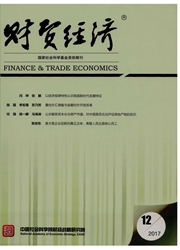

 中文摘要:
中文摘要:
1994—2011年间,因应中央对省级政府的分税制改革及2002年所得税分享改革,各省省以下财政体制也进行了丰富的调整,其重点之一即是增值税和营业税的分成安排。增值税与营业税明显差别的税收分成安排及与相应产业的对应关系,会对地方政府产生不同的财政激励效应,进而影响不同产业规模及结构的变化。本文在财政激励方法指导下,研究了增值税和营业税分成激励的产业效应,并利用1994—2011年间全国地市级政府的税收分成数据对其对应产业的规模及结构变化进行了实证检验,实证结果与理论预期一致:相比增值税,营业税的高分成激励促进了第三产业发展、抑制了第二产业的发展;两税的分成差别显著影响了两个产业的结构变化。进一步,地方政府重点选择土地财政行业来实现营业税的高分成利益。
 英文摘要:
英文摘要:
The fiscal systems of sub-provincial governments had conducted various adjustments during 1994-2011, due to the tax-sharing reform between central and provincial governments in 1994 and the income tax-sharing reform in 2002. One of the key reforms is tax-sharing arrangements of VAT and business tax. The tax-sharing rates of VAT and business tax are significantly different and the taxation scopes of VAT and business tax correspond to different industries, which would give different fiscal incentives to local governments and lead to changes of the size and structure of different industries. In this paper, under the guidance of the fiscal incentives approach, we investigate the industrial effects of tax- sharing incentives of VAT and business tax and test the effects using the data of tax-sharing rates of VAT and business tax in prefectural governments during 1994- 2011. Our empirical results are consistent with the theoretical expectations. Compared to VAT, higher tax-sharing incentive of business tax have promoted the development of tertiary industry and suppressed the development of secondary industry. And the difference of tax-sharing rates between VAT and business tax significantly affects the change in the structure of both industries. Furthermore, we find that local governments prefer land financial industry which can bring higher business-tax revenue.
 同期刊论文项目
同期刊论文项目
 同项目期刊论文
同项目期刊论文
 期刊信息
期刊信息
